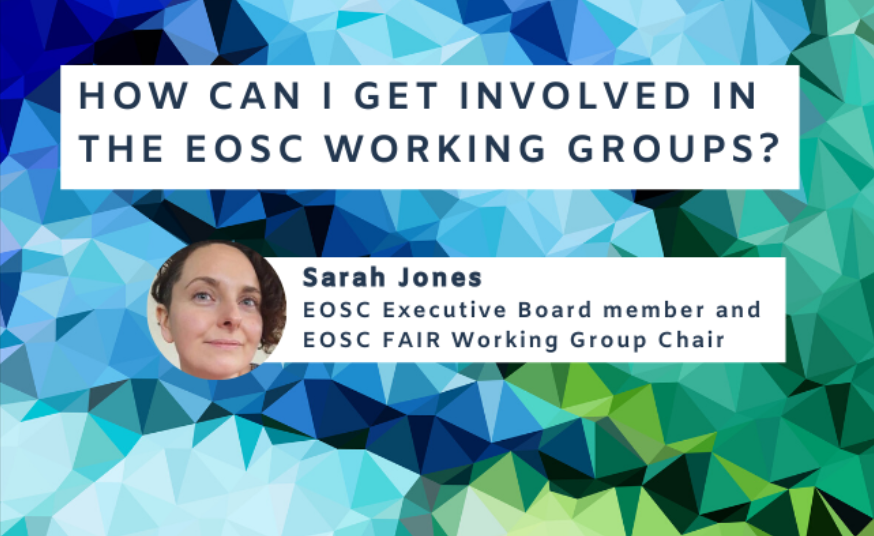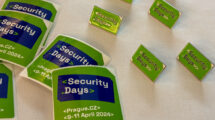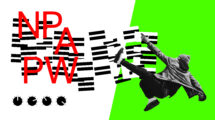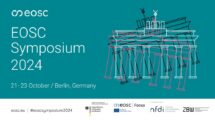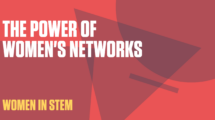By: Sarah Jones, EOSC Executive Board member and EOSC FAIR Working Group Chair
One of the questions I was regularly asked at the EOSCsymposium was how people could join or contribute to the EOSC Working Groups. There are several ways to become involved.
Submit relevant outputs
The Working Groups are dependent on your activities and outputs. We don’t have the Descriptions of Work for each project so are not always aware of what you are doing. Some EC funded projects have been asked to map their activities but it would be incredibly helpful to have a comprehensive picture of what we have and what is forthcoming. Contributions are not limited to EC projects. We are interested in relevant inputs from all initiatives and have already received contributions from GEDE, e-IRG, the Research Data Alliance and W3C.
The following steps are suggested:
- Review the EOSC Strategic Implementation Plan and Work Plan to map your activities against the Working Groups and outputs
- If you have relevant activities and outputs, inform the Working Groups via the public WG emails:
- Architecture Working Group: inform-architecture-wg@eoscsecretariat.eu
- FAIR Working Group: inform-fair-wg@eoscsecretariat.eu
- Landscape Working Group: inform-landscape-wg@eoscsecretariat.eu
- Rules of participation Working Group: inform-rop-wg@eoscsecretariat.eu
- Let us know who the main contacts are in your project/organisation for different activities. Within the FAIR Working Group for example, we are liaising with three different FAIRsFAIR contacts on FAIR practice, metrics and certification.
Contribute to events and consultations
The Executive Board runs periodic webinars and individual Working Groups are starting to release initial outputs for consultation. The Rules of Participation WG have released a discussion document, the Sustainability Working Group have been running a small, invite-only consultation on a strawman document, and the FAIR Working Group has released an initial PID policy and will release metrics and certification standpoints in December and January respectively. We are now consulting on the PID policy at PIDapalooza and online. Sign up to the EOSC Liaison Platform and mailing list if you haven’t already to stay informed.
As indicated in the EOSC Work Plan, the focus of 2020 will be on consultation, testing and iteration. A series of events is likely to develop work in a number of areas. These may be open or focused on invited experts. Knowing your activities and potential contributions will assist us to bring together the right people.
The EOSC Coordination day held by the EOSCsecretariat project on 27-28 November agreed to develop a number of Interest Groups on researcher engagement, the EOSC catalogue and onboarding, the federating group core and glossary. These will be open to all interested parties and will help to coordinate work to provide consolidated inputs to the EOSC Working Groups. Details on how to join will be announced in the coming weeks.
Join Working Groups as a member or invited contributor
When Working Groups are agreed, the Executive Board receives member nominations from Governance Board representatives. Most of the Working Groups are already established, but the same process will apply for the forthcoming Skills Working Group. Governance Board representatives are detailed online so you could indicate your interest and relevant skills to your national contact point.
The Architecture Working Group welcomes one nomination from each Horizon 2020 project, in addition to the members nominated by the Governance Board. It also has an open process to constituting its Task Forces, whereby existing members nominate themselves or external experts in the specific activity e.g. AAI, PIDs, catalogues, glossary.
You don’t have to be a member of Working Groups though to get involved. Where existing activities align closely with Working Group activities, external experts may be invited to join meetings to observe or present. For example, Owen Appleton from EGI and Federica Tanlongo from GARR have presented relevant work from EOSC-Hub and EOSC-Pillar to the Rules of Participation group, and FAIRsFAIR Task leaders have joined FAIR Working Group telecons and held joint meetings on metrics and certification. In addition, the Landscape working group has established close relations with the EOSC-projects engaged in Landscaping activities through a consultant and is welcoming relevant information through the EOSC Secretariat contacts.
Let’s build EOSC together!
The 11 members of the Executive Board can’t create EOSC alone. All of the investment to build EOSC is in H2020 projects and national initiatives so we are entirely dependent on you. Not only do we need to work with you, we also need you to all work together. EOSC is a collaboration and co-creation. In-depth dialogue is needed to reach consensus on how to implement the shared vision.
The EOSC Symposium event showed that there are still many contrasting viewpoints and differences in the language we use to describe the same thing. Nonetheless, it felt like a significant step forward has been made and that we can collectively bring about the EOSC vision. This will demand goodwill, flexibility and compromise from all involved. We need to be pragmatic and do things in small, achievable steps, but together we will get there.
If you missed the EOSC Symposium you can find all the presentations online, plus a post-event report covering all the sessions. The video of the opening plenary session is also available here. We are already working on shaping the programme of the upcoming EOSC Symposium 2020 (provisional dates November-December 2020). If you have any ideas that you would like to share with us please complete the feedback form of this Symposium edition or send us an email at info@secretariat.eu.
